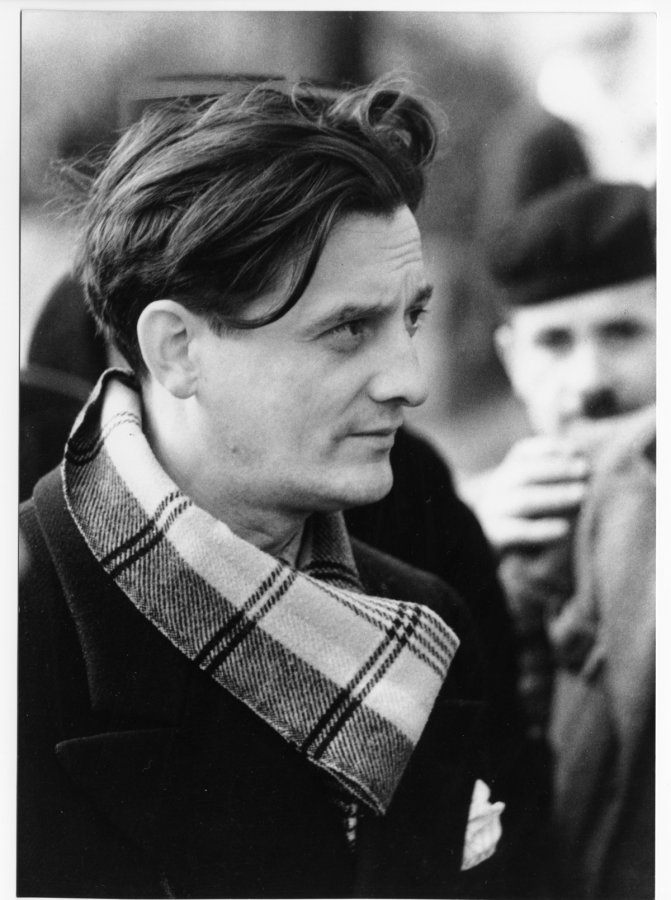The spotlight hosted by the 66th Thessaloniki International Film Festival re-introduces us to one of the most distinguished and versatile personalities of 20th century French culture. Film director, playwright and (mostly autobiographical) novelist, having achieved an equally stunning acknowledgement and praise in all three areas of his journey as an artist, Marcel Pagnol was the perfect embodiment of a true auteur.
Having excelled ever since the early 1920s in playwriting, Pagnol suffered a coup de foudre with cinema during his 1929 visit in London, where he watched a talking film for the first time in the dark theater. Wasting no time, he contacted Paramount, one of Hollywood’s most colossal studios, pitching the adaptation of his own play Marius, opening chapter of the renowned “Marseille Trilogy” and one the most acclaimed works of his entire career. The titular film was finally shot in 1931 by Alexander Korda, became a smashing hit and signaled the kick off of Marcel Pagnol’s grand adventure in the 7th art.
One year later, following in the footsteps and in a sense honoring the legacy of the pioneer Georges Meliès, Marcel Pagnol founded his own production studio in the French countryside, just outside Marseille. Taking on a gamut of different roles and activities, ranging from film director and producer all the way to financier and distributor, Pagnol had built an absolutely functional and concentrative edifice that allowed him a fully-rounded supervision and control over all stages of the filmmaking process. It is also worth mentioning that during WWII, when France was under Nazi occupation and the Vichy regime ordered the requisition of the studio’s equipment, Pagnol opted to destroy the copies of his – destined to remain incomplete – film La Prière aux étoiles rather than seeing them falling into the wrong hands.
Pagnol often adapted his own theater plays for the big screen, having shaped a distinct and solid aesthetic-thematic-stylistic identity right from his early directorial attempts. The evoking of an irrevocably lost youth, the naturalistic tone and the praise of simple life led by the lower classes in rural France, the use of an amateur cast so as attain a convincing patois, the musicality in the film’s narrative and rhythm, as well as the need to redefine and tighten human bonds are among the recurring motifs one comes across in Marcel Pagnol’s filmography.
Within the framework of the Festival’s spotlight, two of Marcel Pagnol’s most iconic films will be screened. The Baker’s Wife (1938), romantic dramedy featuring legendary actor Raimu in the leading role, Pagnol’s frequent partner both in theater and cinema, is a subtle study of manners on human obsession and pride, but also on the peculiarities of living in small communities. Topaze (1951), a poignant satirical comedy, is the second adaptation (the first dates back to 1936) of Pagnol’s titular play, and unfolds like a farcical critique against the self-interest and moral decay of an entire society. The spotlight is complemented by the new film of the multi-awarded virtuoso of contemporary French animation Sylvain Chomet (The Triplets of Belleville, The Illusionist), titled A Magnificent Life (2025), which renders homage to the great Marcel Pagnol.
The Baker’s Wife (1938) takes us to a small Provençal village, daily life grinds to a halt when the new baker, Aimable Castanier, portrayed by the French actor Raimu – a close friend and collaborator of Marcel Pagnol, refuses to bake bread after his young wife runs away with a handsome shepherd. What begins as a personal humiliation soon becomes a communal crisis: without bread, the villagers face a hunger that turns Aimable’s heartbreak into everyone’s problem. Marcel Pagnol transforms this simple premise into a rich and affectionate study of human folly, pride, and solidarity. Blending humor and melancholy, the film observes how the entire village conspires to recover the baker’s wife, not out of moral duty, but out of necessity and self-interest. Anchored by Raimu’s unforgettable performance, The Baker’s Wife is both a satire of provincial hypocrisy and a celebration of collective resilience. It remains one of Pagnol’s most beloved works, admired for its warmth, wit, and timeless portrait of community life.
In Topaze (1951), Marcel Pagnol adapts his renowned play of the same name into a film, offering a sharp and ironic study of morality and corruption. The story follows Topaze, a timid and ineffectual tutor who is dismissed from a boarding school after refusing to compromise his principles. Suddenly unemployed, he accepts work as a private tutor for the nephew of Suzy Courtois, a woman of questionable reputation. Struggling to uphold his earnest ideals in an environment indifferent to them, Topaze gradually abandons his naïve faith in virtue. Instead, he reinvents himself as a cunning opportunist, trading moral integrity for power and self-interest. Pagnol’s direction sharpens the satirical edge of his work, exposing how easily innocence collapses under the weight of social hypocrisy. Anchored by nuanced performances, Topaze endures as a timeless cautionary tale, both witty and melancholy.
A Magnificent Life (2025), the long-awaited new film by the Academy Award nominated French animation director Sylvain Chomet (The Triplets of Belleville, The Illusionist) is a wonderful biographical animated drama that delves into the life of legendary playwright and director Marcel Pagnol. In 1955, Pagnol is going through a crisis of self-confidence, while simultaneously his memory starts to betray him. Tasked with writing a weekly column about his childhood for ELLE magazine, he is tormented by doubts in the wake of his most recent plays’ failure. In this moment of complete vulnerability, the young man he once was, emerges from the depths of his memory – Little Marcel Pagnol. Together, they relive the most significant chapters of their life: from his first steps as a teacher in Provence to his groundbreaking cinematic work with sound, from the construction of his own film studios to the conflicts of World War II. A film that depicts the timeless vitality of a man who was, above all, a bon vivant.















